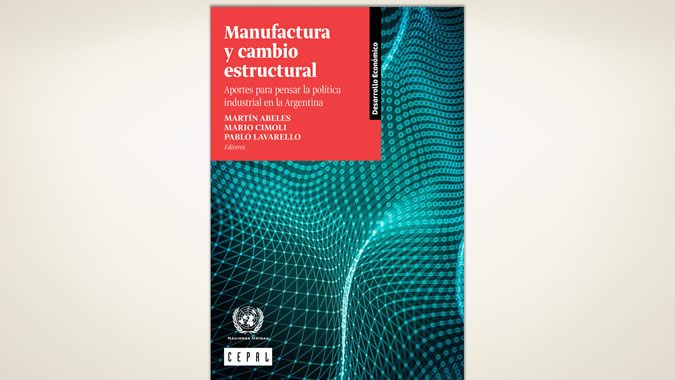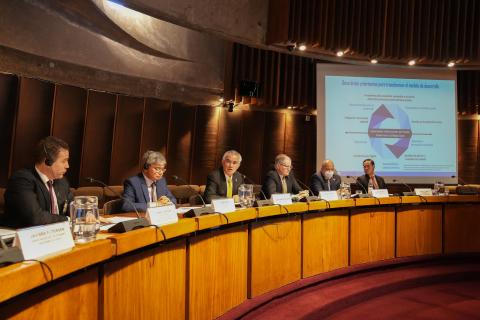Press Release
What do we mean when we talk about structural change? And what do we mean by industrial policy? These are the first two questions that the United Nations Economic Commission for Latin America and the Caribbean (ECLAC) tries to answer in its recently launched book Manufactura y cambio estructural: aportes para pensar la política industrial en la Argentina (Manufacturing and Structural Change: Contributions for Thinking about Industrial Policy in Argentina).
The 336-page book describes the main restrictions faced by the Argentine manufacturing industry in recent decades, analyzes the scope and efficacy of the industrial policies implemented in this South American country, and examines some activities of relatively greater complexity: the capital goods, biopharmaceutical and software production sectors.
“Throughout the chapters, this book seeks to contribute to reflections on and the design of industrial and technological policies in Argentina from a Schumpeterian-structuralist perspective, in keeping with ECLAC’s tradition and its most recent work,” explain editors Martín Abeles, Director of the Commission’s Buenos Aires Office; Mario Cimoli, Director of ECLAC’s Division of Production, Productivity and Management; and Pablo Lavarello, Researcher for Argentina’s National Scientific and Technical Research Council (CONICET).
According to the study, the manufacturing sector has continued to be one of the main sources of expansion for the global economy in recent decades, despite advances made by services and the digital economy in particular.
This sector generates the largest share of worldwide investment in technological research and development, has the largest supply chains and capacity for creating indirect employment, and, based on its own procurement needs, promotes the development of new technologies applied to processes and products that all productive activities can leverage.
In this context, the regional organization adds, the growing incorporation of digital technologies that has enabled the development of the industrial Internet, for instance, demonstrates the importance of the manufacturing industry in fueling technical progress and an increase in the overall productivity of economies.
The book launched by ECLAC brings together contributions from the workshop-seminar entitled Argentine Productive Structure: Recent Evolution and Perspectives, conducted at ECLAC’s Buenos Aires Office in October 2014. Many members of Argentina’s academic community, as well as officials from ECLAC (see related article), participated in the event.
“We hope its publication serves to stimulate a deeper debate on the specific role of industrial policies, not only in Argentina but in other countries of the region as well,” Alicia Bárcena, ECLAC’s Executive Secretary, stated in the book’s prologue. She underscored that the Commission “considers that the manufacturing industry continues to be decisive in the development processes of the region’s countries.”



